Judge says Friendlyjordies, Google video constitute possible contempt of court
A judge has accused Google and Friendlyjordies of trying to intimidate lawyers as well as the former NSW deputy premier.
A popular social media star and tech giant could have published material that a judge said was an attempt to intimidate lawyers and could constitute contempt of court.
Federal Court Justice Steven Rares made the comments on the final day of a defamation trial involving Google and former NSW deputy premier John Barilaro after the company refused to remove defamatory videos from its YouTube platform.
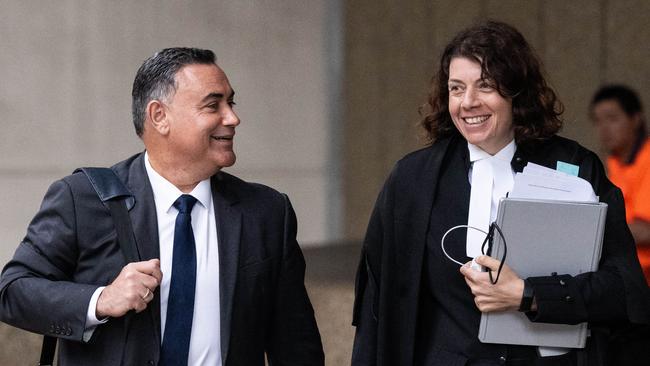
The videos, in which Mr Barilaro claims he was depicted as a bribe-taking corrupt conman who perjured himself nine times, were posted to YouTube by the Friendlyjordies outlet which creates political commentary and comedy videos.
In closing the case against Google, defence barrister Sue Chrysanthou SC argued that Google’s failure to remove the videos had been made worse by allowing further videos to be posted which criticised Mr Barilaro’s lawyers while their case was still before the court.
“Surely someone at Google comprehended that it wasn’t a breach of the Australian solicitors rule to put at the top of a letter ‘private and confidential, not for publication’,” Ms Chrysanthou said.
“Surely someone at Google would have thought ‘I don’t think it’s right to accuse a senior solicitor who’s an expert in defamation, of professional misconduct just for putting those words at the top of a letter.
“It’s probably not appropriate for Google, one of the largest companies in the world, running the second most popular website YouTube, to have a video about a lawyer online that calls him a dumb f*** and says he should be fired.”
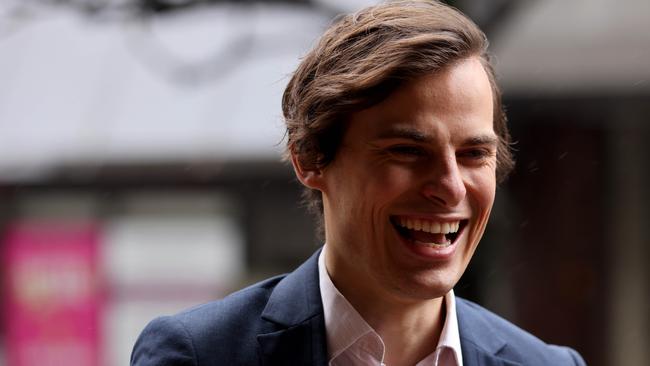
Justice Rares said it was “a matter of grave concern” that Google allowed the video to be published in December last year after Mr Barliaro and Jordan Shanks, the face of Friendlyjordies, reached a settlement and the two videos originally subject to legal action were edited.
“It’s plainly an attempt to attack a parties lawyers with a view to intimidating them out of continuing to act for them and Google put that up, Google’s responsible for that,” Justice Rares told the court.
“They know about the law of contempt or they should.
“It’s just calculated, on its face to intimidate, at least that’s how it appears to me. Mr Shanks was determined to frustrate his [Mr Barilaro’s] seeking of justice by attacking his lawyers and getting them to the point where they wouldn’t want to appear for him because they have to cop this stuff.”
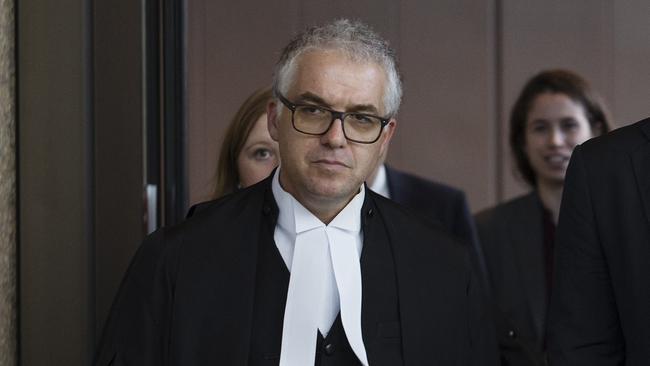
Google’s barrister James Hmelnitsky SC was put on notice that further action was being considered by Justice Rares.
“I’m not going to decide whether they were a contempt but I am saying to you I am giving serious consideration to referring your client and Mr Shanks to the registrar to consider prosecuting for contempt,” Justice Rares told Mr Hmelnitsky.
“I might be wrong, some other Judge might look at it and say there’s no contempt there but it looks to me like a very serious likely finding of contempt by publication to intimidate somebody from acting and therefore to stop Mr Barilaro’s access to justice.”
Mr Hmelntisky said while Google had a role in the “campaign” against Mr Barilaro, it was Mr Shanks who was the main “campaigner”.
“Google’s not a creator of content, they don’t purport to be, they don’t make decisions about uploading material in the first place,” Mr Hmelntisky said.
“Just because something is factually wrong is not necessarily a reason to conclude that it must be taken off YouTube.
“Your honour can think of opinion, satire, comedy, vulgar abuse, bad comedy, bad satire … there are any number of reasons why somebody might rationally form the view that material could stay up.”
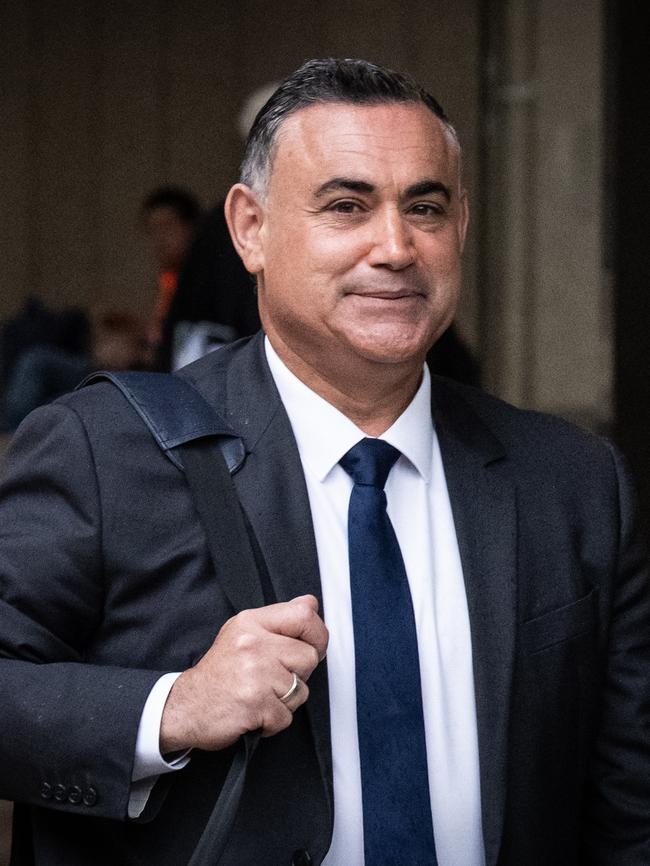
Mr Hmelntisky asked the court to consider Mr Barilaro’s response to other videos Friendlyjordies had posted to YouTube.
“For the most part they are not publications that Mr Barilaro said ‘please remove them’,” Mr Hmelntisky said.
“He didn’t say ‘please remove them’, he said ‘ha I’ll rely on that for aggravation’.
“Another video contained an unanswered allegation about the evidence he gave at the ICAC (NSW Independent Commission Against Corruption).
“He was given every opportunity in the witness box to say what he wanted to say about it and he didn’t want to say anything about it.”
Ms Chrysanthou hit back and said the ICAC issue was “highly offensive and upsetting” for Mr Barilaro who the court heard denied an allegation he lied to ICAC.
“We didn’t come here to deal with that,” Ms Chrysanthou said.
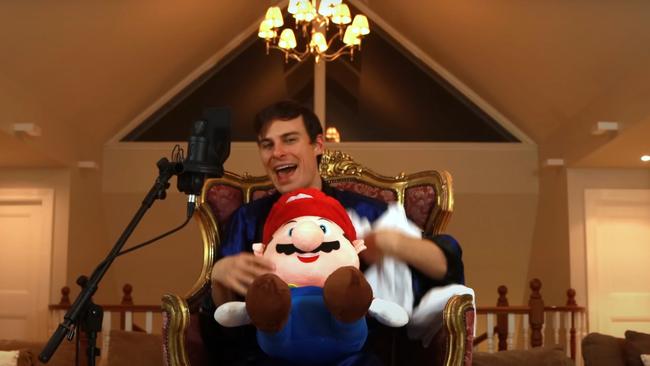
The video in question was played in court during the hearing and it contained 7 News footage of Mr Barilaro being asked about intimate personal relationships while he was giving evidence at ICAC during a probe into former Premier Gladys Berejiklian’s and her ex-lover, disgraced Liberal MP Daryl McGuire.
After the ICAC footage was shown, Mr Shanks referred to Daily Telegraph stories published between October and December 2021 which referred to Mr Barilaro’s marriage ending and him spending Christmas with his former media adviser and new partner.
It then referred to a potential profile on the Ashley Madison website for cheating spouses which Mr Shanks said may have been set up to look like Mr Barilaro.
“That video entirely proceeds on the basis that Mr Barilo has this Ashley Madison account,” Ms Chrysanthou said.
“There can’t be a lie at ICAC unless the Ashley Madison account is legitimate … that’s the whole premise of the video … Mr Barilo said that’s false, there is no Ashley Madison account that he runs.”
Justice Rares said “the ICAC matter was not the issue”.
“He [Mr Barliaro] was trying to bring an end to this litigation and Mr Shanks was trying to find every reason to raise more and more of these allegations,” Justice Rares said.
Ms Chrysanthou said the videos about Mr Barilaro constituted one of the “most extreme cases of damage to reputation” and warranted an award of damages that would trigger the removal of the cap on existing defamation payout limits.
Justice Rares has reserved judgment in the case.
